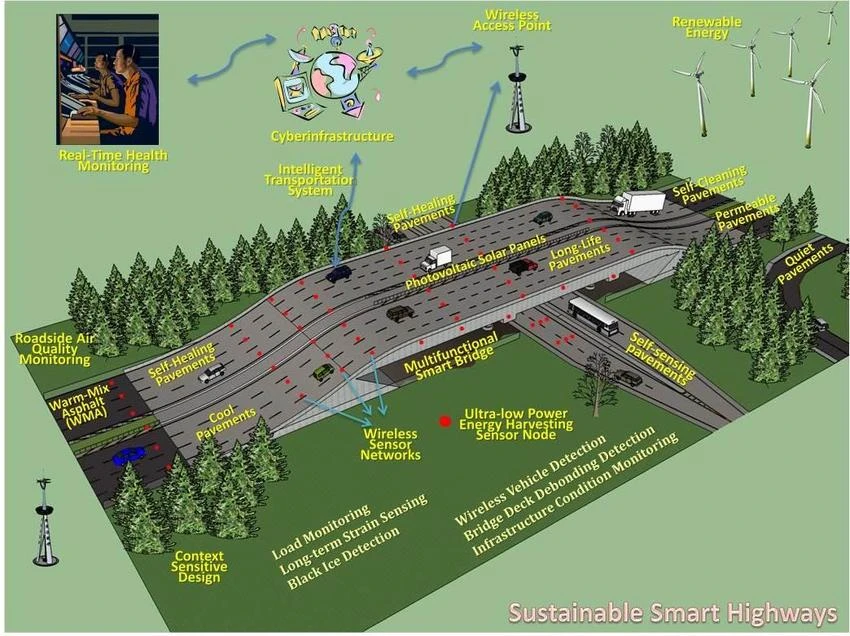What is sustainability?
Sustainability means meeting our own needs without compromising the ability of future generations to meet their own needs. In addition to natural resources, we also need social and economic resources. Sustainability is not just environmentalism. Embedded in most sustainability definitions, we also find social equity and economic development concerns.
The road sector produces the highest level of greenhouse gas, directly through fossil energy used in mining, transportation, and paving works and indirectly through vehicle emissions. The constant increase in the number of road vehicles and therefore the traffic generates a substantial increase in pollution and noise disturbances. Huge challenges await the road construction sector such as cheaper and better production, construction and of course maintenance, all the more as raw materials are becoming scarce and environmental laws are getting stricter regarding air pollution and noise disturbances. Like the rest of the sectors, the road construction sector needs to face the challenge of sustainability.
Green roads can help in this effort because of it:
- Sets a recognisable standard for roadway sustainability
- Recognises owners/designers/contractors for their sustainability efforts
- Communicates sustainability efforts succinctly and effectively
- Grows the market for sustainable products.
Green Highways Rating Systems
Sustainable or green highways are is a system of roads which limit their impact on the environment to a minimum through different sustainable practices. The goal is to maximise the lifetime of a highway while restricting its emissions. Amongst the different construction techniques, we find the use of recycled materials, the establishment of ecosystem management, the implementation of energy reduction actions or stormwater retrieval systems. All projects involving roadway construction are subjected to the mandatory Environmental Impact Assessment (EIA) procedure by the Ministry of Environment.
The USA is also very committed when it comes to implementing “green” actions in the road sector. Indeed, most of the green road rating systems on the market have been initiated by the USA. Some have academic origins while others come from local departments of Transportation. Each stage of a project is evaluated, which allows us to determine if goals are achieved and if not, analyse which stage needs to be improved. The goal is also to identify where sustainable practices can be implemented most efficiently to maximise project sustainability.

Current practices in terms of sustainable highways
To reduce the level of energy consumption, warm-mix asphalt (WMA) can be used to replace hot-mix asphalt (HMA). Besides the fact that WMA is produced at a lower temperature, it also induces great benefits such as an improvement of working conditions (less exposure to heat and fumes) and asphalt compaction, reduction of paving cost and longer hauling.
Sustainability can also be reached through the use of recycled materials (like crushed concrete for instance), which entails a reduction in the consumption of energy needed to import new materials besides the obvious benefits of using recycled materials.
